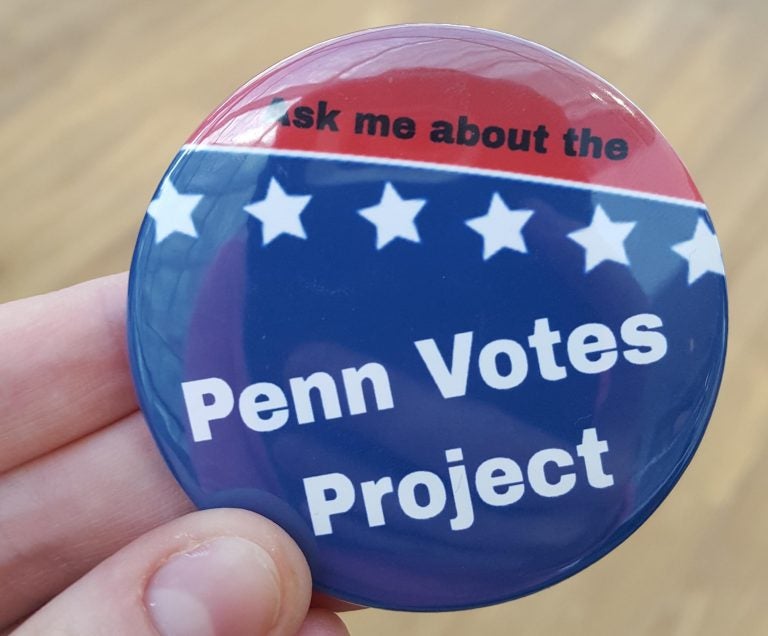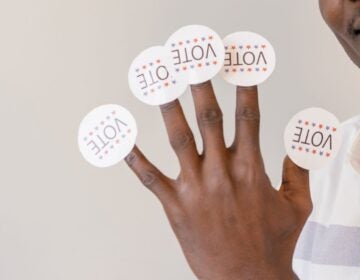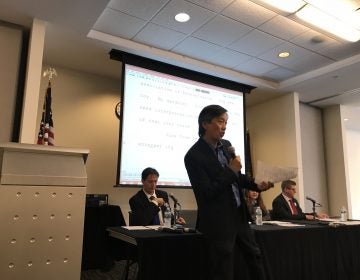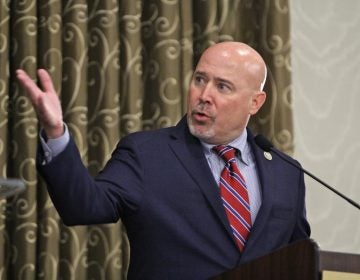A prescription for Philly voters hospitalized on Election Day
Volunteers help Philadelphia patients confined to their hospital rooms cast their votes.
Listen 2:09
The Penn Votes Project is a volunteer-run initiative out of Penn Medicine that secures absentee ballots for hospitalized patients (Penn Votes Project)
What if a medical emergency landed you in the hospital on Election Day, and you couldn’t get to your polling place?
That’s exactly what happened to Neil Deininger’s mother 26 years ago.
It was 1992 — Bill Clinton vs. George H.W. Bush. Deininger’s mother planned to vote, as she had in every other election since she’d turned 18, but this time she couldn’t. She had just given birth to Deininger and was confined to the hospital.
That story stuck with Deininger — and he was reminded of it every year that his birthday and Election Day coincided.
“I think I’ve always been interested in elections and the democratic process because of that,” he said.
So last year, when as a first year law student he heard about the Penn Votes Project — a volunteer-run initiative out of Penn Medicine that secures absentee ballots for hospitalized patients — his ears pricked up.
He realized the problem affected a lot of people besides his mother.
“Even if you’re a committed voter, and you have a voting plan, and you’re prepared to cast a ballot,” he said, “if you’re in the hospital on Election Day, you probably have bigger concerns in mind, and same for your family and friends who might be able to help you.”
Deininger joined the project as a law student volunteer. There are approximately 15 law students involved. About 60 medical and nursing student volunteers also participate.
Voting from the hospital requires jumping through a lot of hoops. Any ballot cast after a week before the election is considered an emergency absentee ballot, which needs to be signed by a doctor and a notary. And if it’s filed after the Friday before an election, it’s considered a “last-minute” emergency ballot and needs a judge’s approval.
That’s where the student volunteers come in. Medical and nursing students talk to hospitalized patients about the program, help them fill out the necessary forms, take those forms to the appropriate doctors and notaries for signature, and then hand over the documents to Deininger and other law students.
The law students then take the forms to the Board of Elections — to make sure a patient is registered and qualified to vote — and bring the forms to the judge for a signature. Once they procure an absentee ballot for the patient, they bring it back to the hospital, where the patient votes and returns the ballot to the law students, who deliver the completed ballot to City Hall. The law students also work with attorneys who can advocate for patients as needed.
It’s a lot of steps. And it’s something most people in the hospital can’t do themselves because they either aren’t allowed to leave or physically cannot.
“It’s a problem that you’re not going to think about unless you’re in that situation,” Deininger said.
That’s why the project hopes to create an infrastructure that will outlast any particular election cycle.
“We don’t just want to do this for the midterm elections, as important as they are,” said second-year medical student Erin Hollander, who organizes the training and coordination of the medical students. “We want to keep this running for all of the elections.”
The initiative began in 2016 at Penn Presbyterian Medical Center, when doctors realized they needed a more efficient way of helping hospitalized patients vote in the 2016 presidential election. The program has since helped with two other elections, including the primaries in May, and has expanded to the Hospital of the University of Pennsylvania for the upcoming midterm election.
In past elections, the program has helped cast about 20 ballots, and with the expansion this year, they hope to cast more.
For her part, Hollander said assisting patients in their efforts to vote is a way she can reach out, even if she doesn’t yet have the bona fides to treat them.
“I have a lot to learn before I am in any way useful to patients,” she said. “So this is still a way that I can help.”
WHYY is your source for fact-based, in-depth journalism and information. As a nonprofit organization, we rely on financial support from readers like you. Please give today.





